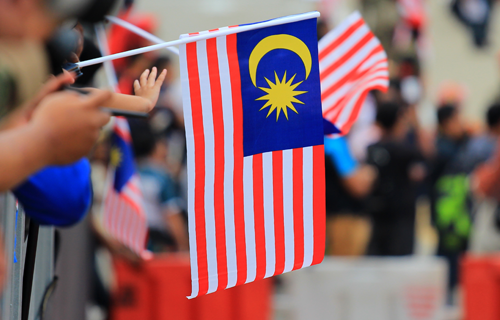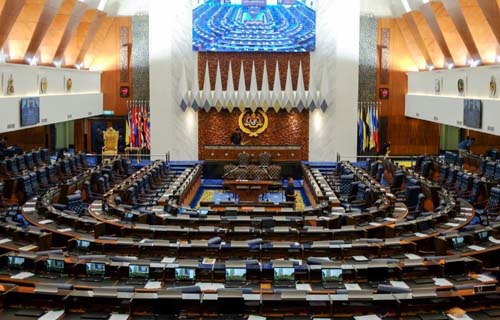A better Malaysian universe

Warning: Spoilers for Star Trek: Discovery
I wonder how much of a spike in online searches of ‘Langkawi’ occurred last weekend, when the estimated ten million watchers of Star Trek: Discovery were likely introduced to the island during the final episode of its first season. The character played by Tan Sri Michelle Yeoh (who is actually from Ipoh) mentions it as her home; in response the lead character remarks on its beautiful beaches. It is comforting to know that they will still be around in the mid-23rd century. Perhaps today, a young astronomer visiting the Langkawi National Observatory will help make such dreams a reality, going from the island of Mahsuri past the planet of Musytari.
Incidentally, this isn’t the first time Malaysia features in the franchise, with Kota Bharu being specifically mentioned in Star Trek: Enterprise, set 130 years from now. And even in the late 24th century our coasts are still dotted with beach houses, as mentioned on Star Trek: Voyager.
As stirring as references to our country in famous shows are, the real reason to watch Star Trek is its exploration of humanity and morality, which it has been consistent in doing since its beginnings in 1966. Boldly going where no one has gone before, it was the first series to portray a black woman on television who was not a maid (inspiring Whoopi Goldberg to become an actress, who herself starred in Star Trek: The Next Generation), alongside Asian and Russian men (despite the height of the Cold War). The always multiracial casts later featured a black and female captain, and now through Tan Sri Michelle’s Yeoh character, a Malaysian woman.
In Star Trek: Discovery, the concept of the mirror universe (which has appeared previously in the franchise) is used as the main vehicle for provoking societal pondering. In this difficult-to-reach alternate reality, human beings live in an authoritarian civilisation called the Terran Empire where might is right and the values of compassion, cooperation and tolerance (represented in the normal universe by the United Federation of Planets) are largely absent. When the characters first discover the mirror versions of themselves, it seems that they are just innately evil.
However, as the narrative develops, it becomes clear that the humans of the mirror universe behave differently not as a result of physics or biology, but rather of governance and politics: it is the incentives provided by institutions that cause people to act in certain ways. In interviews, the writers have hinted that they are motivated by the current state of US and world politics; that a growing distrust in institutions (and among each other) is triggering behaviour akin to the mirror universe. The tragedy of the dystopia is that it is very difficult to change the status quo.
As far-fetched as the mirror universe may sound, it is not such an alien concept for Malaysians. It is already a common, if subconscious, practice, among many of us to behave differently according to jurisdiction we are in. When we visit another country where the rule of law is applied without fear or favour, we pay closer attention to rules and regulations, even if we don’t like them (like the sleepy speed limits on Singapore’s expressways).
The gloomier question is whether Malaysians are behaving like mirror versions of themselves in their own country when they couldn’t imagine it before, such as by seeking promotions by undermining their superiors, bribing or blackmailing others to escape punishment, or holding on to power despite the cost to the nation or other human beings. Once a critical mass of people navigate life in this way, then we will already have brought the Terran Empire to our shores, without the need for 23rd century technology.
I would like to believe that the majority of Malaysians live closer to the ideals of the Rukun Negara than its mirror alternative. However, the perception towards some within our political class may be different; if that becomes normalised and permeates through our young people, that’s when we’ll enter the black hole.
A couple of weeks ago dozens of students from my old school visited the Jalan Merdeka Exhibition at Carcosa and Seri Negara, and watched the Road to Nationhood documentary produced by Rack Focus Films. Seeing their enthusiasm, attentiveness and colour blindness in terms of their friendships reminded me of the innocent universe of my own childhood. Looking back, it was only long after I left school that I realised that certain differences between other people were deemed so important by society.
Remember your universe, I told them, and recreate it if you find yourself in another one in the future.
First published in Conservatively Speaking Freely, theborneopost.com and themalaymailonline.com, 23 February 2018.
YAM Tunku Zain Al-‘Abidin ibni Tuanku Muhriz is the Founding President of the Institute for Democracy and Economic Affairs and a Trustee Jeffrey Cheah Foundation.


